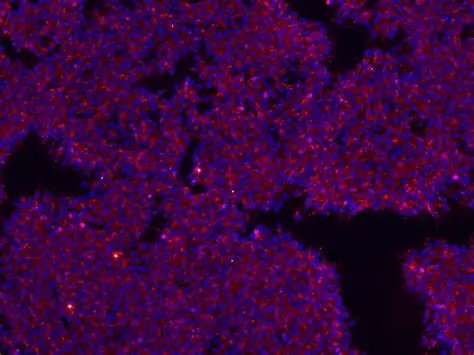I Peace and Vita Therapeutics Partner to Develop Universal Hypoimmune iPSC Lines for Cell Therapy
11 July 2025 | Friday | News

Image Source : Public Domain
Leading GMP cell CDMO I Peace, Inc. specializing in induced pluripotent stem cells (iPSCs) and iPSC-derived cell therapies, announced that the company has agreed with Vita Therapeutics (Vita) to jointly develop universal iPS cells that will be used for cell transplantation therapy.
GMP-grade iPS cells will be modified with proprietary, licensed gene editing technology to make a base platform hypoimmune line where Class I and II HLA genes that determine rejection have been depleted. These hypoimmune lines can be further customized in I Peace cGMP facilities.
I Peace will provide its GMP iPS cell-related technology to generate the MCB's for the parent line and the modified subclones, while Vita will provide the technology necessary for gene editing and developing iPSC-derived universal cells. The manufactured MCB through this collaboration will be registered in the FDA Drug Master File (DMF).
I Peace will retain rights to supply MCB's of normal and gene-edited cells and to supply differentiated products generated from these lines for cell therapy purposes in all other areas.
- What are universal cells?
These cells are designed to suppress immune rejection due to human leukocyte antigen (HLA) incompatibility, which can occur during allogeneic cell transplantation therapy and can be transplanted without having to consider compatibility with the recipient's human leukocyte antigen (HLA) type. In this collaboration project, we will create these universal cells from iPS cells, and Vita will use them for cell transplantation therapy in FSHD patients
What is a DMF (Drug Master File) A DMF filing facilitates the use of iPSCs in therapeutic development by providing a standardized data package and streamlining the regulatory submission process. This is particularly important for clinical-grade iPSC lines used in the later stages of drug development. For the FDA to review a DMF, it must be referenced in an application. The company holding the DMF must provide a Letter of Authorization (LOA) to the applicant/sponsor, allowing the FDA to refer to the DMF's contents. In summary, acceptance of a DMF for iPSCs indicates that the iPSC line and its associated information have been submitted to the FDA in a format that allows the FDA to review it in conjunction with other regulatory applications, facilitating the development and clinical use of therapies based on these cells.
Most Read
- How Does GLP-1 Work?
- Innovations In Magnetic Resonance Imaging Introduced By United Imaging
- Management of Relapsed/Refractory Multiple Myeloma
- 2025 Drug Approvals, Decoded: What Every Biopharma Leader Needs to Know
- BioPharma Manufacturing Resilience: Lessons From Capacity Expansion and Supply Chain Resets from 2025
- APAC Biopharma Review 2025: Innovation, Investment, and Influence on the Global Stage
- Top 25 Biotech Innovations Redefining Health And Planet In 2025
- The New AI Gold Rush: Western Pharma’s Billion-Dollar Bet on Chinese Biotech
- Single-Use Systems Are Rewiring Biopharma Manufacturing
- The State of Biotech and Life Science Jobs in Asia Pacific – 2025
- Asia-Pacific Leads the Charge: Latest Global BioSupplier Technologies of 2025
- Invisible Threats, Visible Risks: How the Nitrosamine Crisis Reshaped Asia’s Pharmaceutical Quality Landscape
Bio Jobs
- Sanofi Turns The Page As Belén Garijo Steps In And Paul Hudson Steps Out
- Global Survey Reveals Nearly 40% of Employees Facing Fertility Challenges Consider Leaving Their Jobs
- BioMed X and AbbVie Begin Global Search for Bold Neuroscience Talent To Decode the Biology of Anhedonia
- Thermo Fisher Expands Bengaluru R&D Centre to Advance Antibody Innovation and Strengthen India’s Life Sciences Ecosystem
- Accord Plasma (Intas Group) Acquires Prothya Biosolutions to Expand Global Plasma Capabilities
- ACG Announces $200 Million Investment to Establish First U.S. Capsule Manufacturing Facility in Atlanta
- AstraZeneca Invests $4.5 Billion to Build Advanced Manufacturing Facility in Virginia, Expanding U.S. Medicine Production
News











